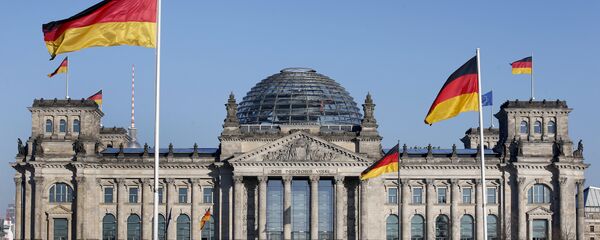WIKILEAKS CREATION
WikiLeaks is a not-for-profit media organization created by Australian activist Julian Assange in 2006. WikiLeaks’ stated goal is to bring important news and information to the public eye and provide an anonymous and secure way for sources to get information into the public awareness.
The whistleblowing organization released its first secret document, a leak disclosing Somalian politician's plans to assassinate government officials, ten years ago, on December 28, 2006.
In a letter, the authenticity of which WikiLeaks itself was not certain about, Sheikh Hassan Dahir Aweys, the head of the council of the Islamic Courts Union (ICU) of Somalia, suggested to employ criminals for the assassination of government officials to reinstate the rule of the Sharia law.
In 2008, the US Army Counterintelligence Center designated WikiLeaks a potential threat to the military.
Assange won the Amnesty International UK Media Award in 2009 for a series of materials exposing corruption in Kenya.
Since 2012, Assange has been residing at the Ecuadorian Embassy in London for fear of being extradited to Sweden, where he is accused of rape. Assange denies the rape allegations, claiming they are a ruse organized by Washington to hand him over to the United States where he is wanted for leaking thousands of top-secret military documents.
DOCUMENTS ON IRAQ AND AFGHANISTAN
In 2010, WikiLeaks began publishing online the official US military and diplomatic documents. The first postings concerned US operations in Afghanistan.
In May 2010, former US Army Private Bradley (now Chelsea) Manning was arrested in Iraq, where he was assigned to an Army unit. In July, Manning was accused of leaking classified documents to WikiLeaks.
Manning leaked an enormous amount of material, including videos of airstrikes in which civilians were killed, hundreds of thousands of US Army reports from Afghanistan and Iraq war incidents, files relating to prisoners confined in the US Guantanamo Bay detention camp and about 250,000 diplomatic messages from the US State Department.
In August 2013, Manning was sentenced to 35 years imprisonment for leaking more than 700,000 classified documents.
In October 2010, WikiLeaks released a set of almost 400,000 documents labeled the "Iraq War Logs," covering a period from January 1, 2004 and December 31, 2009. Among many other revelations, the documents added 15,000 civilian deaths to the record.
US DIPLOMATIC CORRESPONDENCE
In November 2010, WikiLeaks released diplomatic messages from US embassies worldwide to the US State Department. The messages contained numerous frank comments about foreign political leaders and their policies.
In April 2013, WikiLeaks released 1.7 million documents of the US State Department and intelligence service from 1973-1976. According to Assange, these documents shed light on a broad range of US actions that affected world politics and history.
Henry Kissinger, US Secretary of State between 1973 and 1977, was author to many of the leaked documents. WikiLeaks labeled the document grouping Public Library of US Diplomacy (PlusD). The library holds the world’s largest collection of United States confidential diplomatic communications available online for free to search within.
US INTELLIGENCE FOREIGN ACTIVITIES
In May 2014, WikiLeaks released a document showing that the National Security Agency (NSA) has been recording and storing nearly all the domestic and international phone calls from two or more target countries as of 2013.
In June 2015, WikiLeaks published documents indicating that the NSA had been keeping French presidents under surveillance, beginning with Jacques Chirac, and had been engaged in economic espionage against French companies.
A month later, a new leak showed that the NSA had been spying on Germany's top officials, including Chancellor Angela Merkel, for years.
UKRAINE
In May 2014, WikiLeaks released a classified report by US Assistant Secretary of State William Burns dated February 1, 2008. The report covered NATO’s possible eastward expansion, the admission of Ukraine and Georgia to the organization, and the risks of the policy.
The report quoted experts saying that Russia was particularly concerned that the issue of Ukrainian admission to NATO could split the country, lead to violence and in a worst-case scenario, to war. The report said that such a policy could seriously worsen relations between Russia and Ukraine.
In June 2014, WikiLeaks reported that Ukrainian President Petro Poroshenko, then a lawmaker, briefed US Ambassador to Ukraine John Herbst on the progress of a coalition government formation in the spring of 2006.
A message from the US Embassy in Kiev to the US State Department dated April 28, 2006, described Poroshenko as an insider belonging to the Our Ukraine party. US diplomats expressed doubt about the reliability of Poroshenko's information.
In particular, Poroshenko was suspected of participating in a plot to arrest Ukrainian former Prime Minister Yulia Tymoshenko’s associate Aleksandr Turchynov, who preceded Poroshenko as acting president.
According to documents posted online by Wikileaks, Tymoshenko, former head of the natural gas trading company Unified Energy Systems of Ukraine, may have cooperated with organized crime boss Semion Mogilevich, believed to be a primary Russian Mafia figure.
MOST IMPORTANTS LEAKS OF 2015-2016
On April 16, 2015, WikiLeaks published over 30,000 documents from Sony Pictures Entertainment (SPE) internal correspondence. The messages included communication between SPE CEO Michael Lynton and US Under Secretary of State Richard Stengel, showing that the US State Department attempted to involve the company in a "propaganda war" against Russia.
On June 4, 2015, WikiLeaks released 17 classified documents shedding light on secret negotiations within the framework of the Trans-Pacific Partnership (TPP), including the United States, the European Union and 23 World Trade Organization member countries. According to WikiLeaks, one of TPP’s goals is to counter the growing economic impact by BRICS countries, comprising Brazil, Russia, India, China and South Africa.
On June 19, 2015, WikiLeaks released over 70,000 documents from the Saudi Foreign Ministry including secret correspondence of Saudi Embassies around the world. The documents included classified reports from Saudi State institutions, comprising the Interior Ministry and the General Intelligence Directorate.
WikiLeaks reported that Saudi Arabia advised Bahrain to limit Shiite access to a number of major projects. According to WikiLeaks, Saudi Arabia was collecting information on Shiite activities in Bahrain as well as political, business and familial relationships.
On December 1, WikiLeaks made public 2,420 documents related to the German parliament's inquiry into the cooperation of Germany's foreign intelligence agency Bundesnachrichtendienst (BND) and the United States' National Security Agency (NSA), particularly, the surveillance activities of the two.
The released documents indicate, among other things, that BND may have attempted to withhold some information during the government checks and that it would not disclose the full list of everyone they put under surveillance at the request of the NSA.
On December 5, WikiLeaks released 57,934 emails allegedly from the account of Turkey's Minister of Energy and President Recep Tayyip Erdoğan's son-in-law Berat Albayrak. The documents seemed to tie Albayrak to the Turkish energy company Powertrans, which has been accused of selling oil received from the Islamic State.
US DEMOCRATIC PARTY
In 2016, WikiLeaks released a large trove of documents related to the US Democratic Party.
In July 2016,the whistleblowing organization published about 28,000 files sent to or received from the Democratic National Committee staff, revealing the party's criticism of potential presidential candidate Bernie Sanders and its favoring Hillary Clinton, who eventually won the nomination.
Starting on October 7 and up to the November 8, when the presidential election took place, Wikileaks was releasing documents, a total of 58,660 emails, allegedly obtained from Clinton's campaign chairman John Podesta.
The emails shed light on the possible misappropriation of the Clinton Foundation's finances, campaign staff's back-and-forth on the expediency of releasing the FBI-requested emails from Clinton's private server, the candidate's change of heart on free trade and Clinton's aides' worries about her likability.
Never miss a story again — sign up to our Telegram channel and we'll keep you up to speed!




